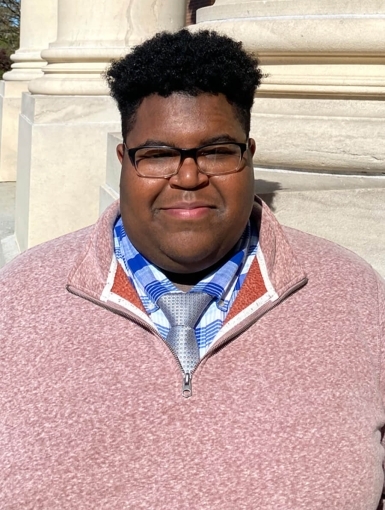
According to the National Alliance on Mental Illness, 20-30 percent of individuals with severe mental illness lack the insight or awareness of their mental health condition, a phenomenon known as anosognosia. This inability to recognize the extent of their illness and their need for treatment poses significant challenges. HB0576 and SB0453, known as the “Mental Health Law - Assisted Outpatient Treatment Programs,” built off of last year’s bill, HB0823, were introduced as administrative bills, making them, once passed, mandatory programs. It is designed to give Maryland courts the ability to order assisted outpatient mental health treatment for individuals with severe mental illness and a history of noncompliance with therapy. Prior to the bills passing this year, Maryland was one of only three states in the U.S. without legislation enabling such assistance for medical professionals, the courts and family members in such instances.
After facing another defeat during the 2023 legislative session, the Health and Government Operations (HGO) Committee reflected on the inability to get this legislation passed and next steps. HGO tasked a team – including their intern, Jamal Oakman, a policy graduate student – with comprehensively researching and analyzing existing programs similar to the one Maryland has been working to establish. The team produced a summary of the existing legislation and reviewed the legislative process associated with the bill to date. They then crafted a memo and presentation aimed at helping state legislatures to understand the intricacies and necessity of the legislation, laying the groundwork for a smoother process when reintroduced during the 2024 legislative session.
Many find it challenging to understand the need for someone to be institutionalized unless they've personally experienced it.Jamal Oakman
Oakman says the continued stigma surrounding mental illness is one of the ongoing challenges when it comes to mental health policies. “We've made progress as a society. Most people are willing to talk about feeling anxious or depressed,” Oakman said. “However, it's more difficult to discuss serious mental health concerns and their impact on our society, and many find it challenging to understand the need for someone to be institutionalized unless they've personally experienced it.”
These issues speak to the challenges facing society and the need to educate ourselves about mental health matters in our families and within ourselves. Oakman shared, “It's important to learn about the specific issues our communities face. By staying informed about mental health at different levels, we can contribute to creating a more understanding and supportive society.”
As he considers the intersections of health, criminal justice, economics and race, Oakman believes blending these disciplines is essential for tackling problems and the disparate impacts in these policy areas. “I am particularly interested in advancing health equity, criminal justice reform and economic equity,” he said. “These targeted areas present opportunities for creating impactful and positive change toward a more equitable society.” Oakman believes without understanding the role money and public finance play in advancing equity, creating impactful policy will be difficult. “Understanding the flow of money is key to grasping societal priorities and identifying areas where improvements can be made,” he said.
As policymakers, understanding the past is essential to grasping the potential impact of our current efforts on the future.Jamal Oakman
Reflecting on his PLCY698A: Poverty Measurement and Alleviation class, Oakman is reminded of the importance of history and its ability to help us navigate future policy decisions by reminding us of past mistakes and providing us with an opportunity to learn from them. “Exploring the mistakes that have shaped the unique circumstances we face today is crucial,” explained Oakman. “As policymakers, understanding the past is essential to grasping the potential impact of our current efforts on the future. It is not only about preventing repetition but also about understanding perceptions and public attitudes and making decisions with a keen awareness of the long-term generational impacts our actions may have.”
Addressing the historical perceptions and reasons that have prevented Maryland from establishing an assisted outpatient treatment program was a crucial element in the work Oakman completed for the MGA to use in this current legislative session.
As Oakman looks to the future, he is hopeful. “It's not just about crafting great solutions; it's also about navigating the political landscape to bring about real change. History serves as a guiding light, reminding us of past mistakes and urging us to learn from them to create a better future.”
Building relationships through mentorship can also bridge the gap between the past and present. Oakman sees the mentor relationship as pivotal for shaping the next generation of policy professionals. In considering the job market today, Oakman believes connections are crucial, and having a mentor who is established in the field can provide invaluable opportunities for networking and learning. However, he says, the depth of personal connection that mentorship fosters truly sets mentorship apart from other professional relationships.
Oakman and his mentor often engage in conversations beyond career-related matters. “By embracing this more holistic approach to mentorship, we create an environment where emerging policy professionals can flourish not only in their careers but also as individuals,” he said. “The mentorship experience extends beyond professional guidance; it becomes a journey of personal growth, empowerment and lifelong learning.”
For Oakman, embracing a holistic approach is readily incorporated into his pursuit of his master’s degree in social policy. Since this area of policy is expansive and has numerous gaps to fill, Oakman encourages classmates to not only advocate for topics and courses that are important to them but to venture out of the School of Public Policy to take courses. Exploring across the different schools at UMD allows students to gain insights into various subjects and a diverse range of topics.
“While taking the essential core courses, be proactive in asking questions about specific areas that resonate with your interests,” suggests Oakman. “There's always a way to connect what you're learning in a core class to the topics that truly captivate you. Remember, it's your education – make the most of the university's offerings.”

